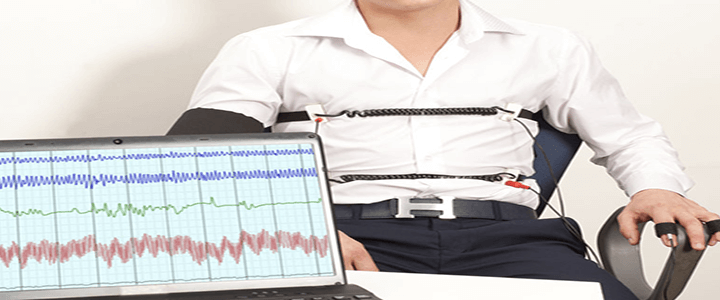Earlier this month, I received a letter from a reader who is a decades-long veteran of the security clearance world. He has previously passed the counterintelligence (CI) polygraph accompanying his TS/SCI with flying colors, as well as his periodic reinvestigations. Recently, however, when he was hooked up to a polygraph machine for a re-examination… he failed. He was told by the examiner that he was “all over the place,” and withholding conscious thoughts.
The reader writes that he was not, in fact, withholding information, and could easily pass a reinvestigation. The problem as he sees it is that the further into the polygraph examination he got, the greater the pressure he felt. An awful lot was riding on this test, after all: his livelihood, his career, his dignity, his family’s financial well being—it was as though the weight of the world rested on every answer he gave. It was one giant mind-warp, and so he failed.
Complicating matters is that he has been diagnosed with mild depression. (The anxiety is obvious.) To get to the bottom of things, and to figure out how our reader might proceed from here, I reached out to the experts. And what I learned was… not encouraging! The problem isn’t our reader. It’s the examination itself.
“Polygraph tests are not a valid technique for assessing truthfulness,” says Leonard Saxe, a social psychologist and professor at Brandeis University. He has studied polygraph tests for over 30 years. “I recognize that polygraph tests may still be required for jobs requiring a security clearance. Other than protesting their use, I’m not sure what to advise a person who fails an examination. Assessing autonomic nervous system reactions to questions about one’s history should not be part of how individuals are selected for sensitive jobs.”
Sean Bigley, an attorney practicing security clearance law and a regular ClearanceJobs contributor, says that failing a polygraph while being truthful “happens all the time,” but that alone is not grounds for a clearance revocation. Security Executive Agent Directive-4—a government-wide policy since June 2017—prohibits the use of polygraph technical calls (e.g., the determination that someone is being deceptive) as the basis for denial or revocation of one’s security clearance.
Specifically, the guideline states: “No negative inference concerning eligibility under these guidelines may be raised solely on the basis of mental health counseling. No adverse action concerning these guidelines may be taken solely on the basis of polygraph examination technical calls in the absence of adjudicatively significant information.”
To deny or revoke a clearance based on a polygraph examination, in other words, now explicitly requires either an admission of adverse information, or, Bigley says, “the use of detected countermeasures like controlled breathing to defeat the test.“
HOW DEPRESSION AND ANXIETY AFFECT THE POLYGRAPH
Forty million adults in America suffer from anxiety-related disorders, and the clearance community is not immune to this.
“The polygraph examiner is supposed to take baseline readings and account for medical conditions like anxiety,” explains Bigley. The problem is that examiners are not physicians and have a tendency to make assumptions about physiological reactions that they are not adequately trained to make—or aren’t supported by science. “This is one of the reasons why polygraph examinations are inherently unreliable and generally inadmissible in court. It is unfortunate that the intelligence community continues to rely on them as the great arbiter of security-worthiness.”
The question, then, is whether pharmaceuticals designed to treat anxiety and depression play a role in one’s passage or failure of the polygraph. The answer: sort of. Dr. Saxe explains: “The fundamental problem is that there is no unique physiological response to lying. So, yes, anxiety plays a role, as do medications that affect heart rate and blood pressure.”
Bigley concurs. In theory, he says, both anti-depressants and anti-anxiety medications can impact physiological readings, but so can something as innocuous as failing to eat breakfast, or running up a flight of stairs before the exam. Such actions skew one’s baseline readings. “I won’t purport to be a medical expert,” he says, “but my point is that there are all sorts of things that can impact an exam and it is a complete fallacy to call the polygraph a ‘lie detector.’”
So if you’ve failed a poly but have done nothing wrong, what can you do? According to Bigley, if the position in question requires favorable completion of a polygraph, Security Executive Agent Directive-4 won’t help you. Failing a polygraph examination based solely on a “deception” determination or an inconclusive result can still be the basis for a “suitability denial” or “administrative withdrawal of access.”
The good news, to the extent that there is good news: “Neither of those outcomes are reportable on the SF-86,” he says. “So going forward, the individual can still apply to cleared jobs that don’t require a polygraph.”




